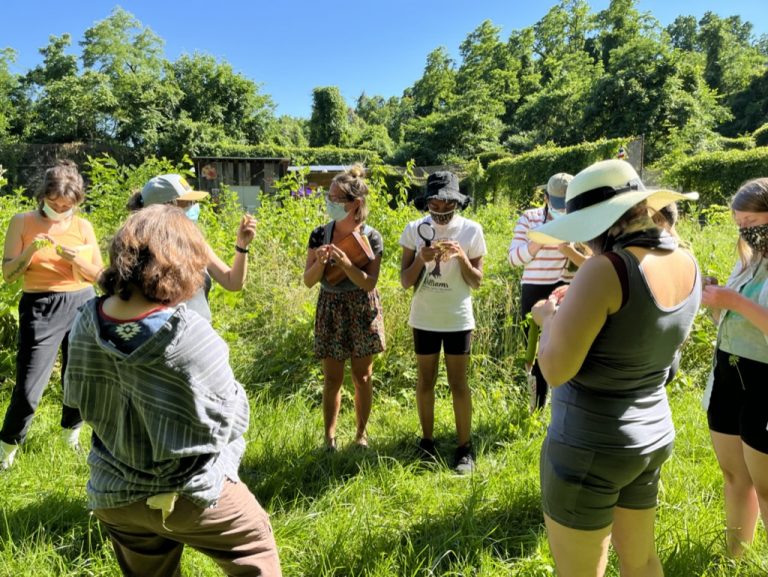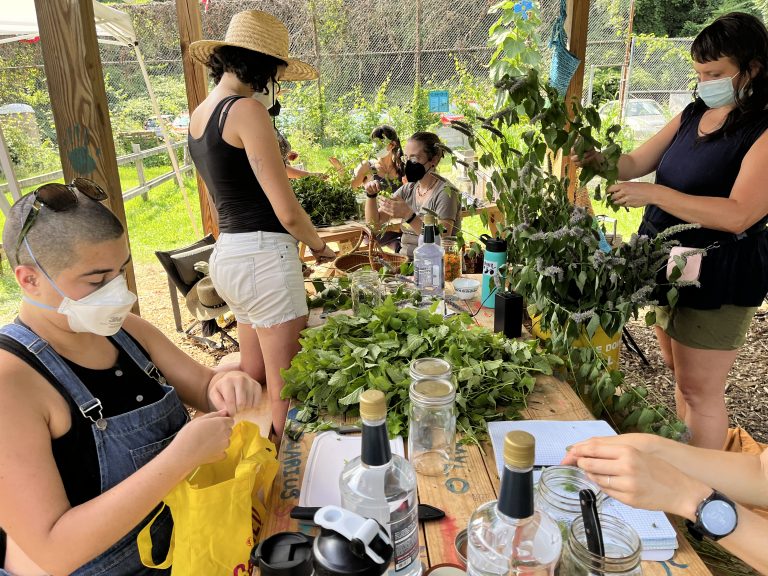The Wild Cherries Herbal Studies Program offers their 2024 Intro to Herbal Medicine, a three-season, 108-hour weekend herbal intensive exploring health, resilience, and the plant world. The program incorporates medicine-making and herbal knowledge with botany and fieldwork, all based on a foundation of social justice and decolonization.
Their brand-new curriculum focuses on foundational herbal skills — forming lively connections with the plants in the region, making your own medicines, caring for your body and mental health, and building an understanding of the energetic properties of herbs. Their more advanced physiology and herbal topics are being moved to their forthcoming Year 2 program, which will give them all more time to delve into the depths of these topics, internalize new skills, and foster meaningful relationships.
The brand-new curriculum focuses on foundational herbal skills — forming lively connections with the plants in the region, making your own medicines, caring for your body and mental health, and building an understanding of the energetic properties of herbs. Their more advanced physiology and herbal topics are being moved to our forthcoming Year 2 program, which will give us all more time to delve into the depths of these topics, internalize new skills, and foster meaningful relationships.

2024 schedule
(One weekend a month, March through November.)
Saturdays are 11-5 pm
Sundays are 11-4 pm
Class weekends will be held:
March 30-31
April 20-21
May 18-19
June 22-23
July 20-21
August 17-18
September 21-22
October 19-20
November 2-3
Class locations will include Pittsburgh, our farm in Butler, PA, and other regional wild places.
Tuition is $1500 (scholarships are available). This money goes towards paying lead and guest teachers, rent at class facilities and class supplies. Students should plan for additional costs, including gas, books, and medicine-making materials.
They offer some scholarship positions for people of color, indigenous people, and trans/non-binary folks. In their work as white herbalists, they want to address the patterns of colonization and white supremacy in their herbal practices and to help bolster the many forms of resistance to the systems and structures of oppression we live under. This includes trying to make this course more accessible to people of color and trans folks.
They also offer a few work-trade positions to allow folks to offset part of the cost of tuition. Payment plans are also available.
For additional information, contact them at [email protected] or (615) 804-0064.
Check out their site here.


